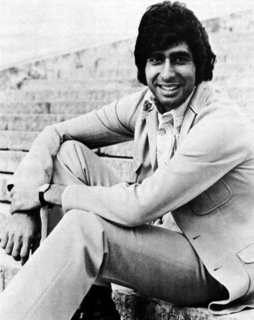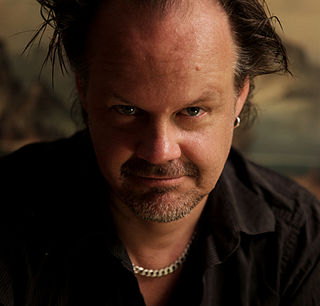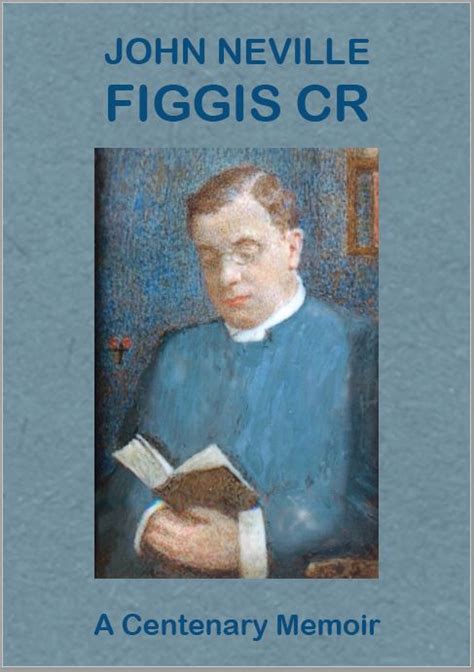Top 520 Sentimental Quotes & Sayings - Page 8
Explore popular Sentimental quotes.
Last updated on December 4, 2024.
Jesus reminds us that the good life combines the toughness of the serpent and the tenderness of the dove. To have serpent-like qualities devoid of dovelike qualities is to be passionless, mean, and selfish. To have dovelike without serpent-like qualities is to be sentimental, anemic and aimless. We must combine strongly marked antitheses.
God has frequently to knock the bottom board out of your experience if you are a saint in order to get you into contact with Himself. God wants you to understand this is a life of faith, not a life of sentimental enjoyment of His blessings. ... "Though He slay me yet will I trust Him" - this is the most sublime utterance of faith in the whole of the Bible.
When I'm driving past the place I used to work, or when I'm driving past the comedy studio where I used to take photos in exchange for classes, or when I'm driving past the yoga studio I used to clean on the weekends - it's not that far removed from me yet. I get very sentimental over things like that.
I am easily moved to tears and rarely survive a visit to the cinema without shedding them, racked, as I am, by the most perfunctory, meretricious or even callously sentimental attempts at poignancy (something about the exterior of the human face, so vast and palpable, with the eyes and the lips: it is all writ too large for me, too immediate for me.)
Yeah, I'd say there's probably about a couple of hundred people I admire - but that has nothing to do with what a person does themselves. That's why I never mention these things. You can read a detective novel you really like, but it had no bearing on what you do yourself, you just think, "God, how this guy wove this together!" Or you get into the energy of it. Or you see a poem which makes a great statement about sentiment, but it's not sentimental.
The life and ventures of Mickey Mouse have been closely bound up with my own personal and professional life. It is understandable that I should have sentimental attachment for the little personage who played so big a part in the course of Disney Productions and has been so happily accepted as an amusing friend wherever films are shown around the world. He still speaks for me and I still speak for him.
It is my considered opinion that the human race (soi disant) is cruel, idiotic, sentimental, predatory, ungrateful, ugly, conceited and egocentric to the last ditch and that the occasional discovery of an isolated exception is as deliciously surprising as finding a sudden brazil nut in what you know to be five pounds of vanilla creams. These glorious moments, although not making life actually worth living, perhaps, at least make it pleasanter.
I needed to do a lot of saying no. I had a lot of [interest] from people who I just didn't think were quite right for it. And I didn't want a bad film to be made of the book, either a sentimental one or a creepy one, so I did a lot of, "No thank you." Then when the right filmmaker came along, yes, I suppose I presented myself very much as wanting to be the writer.
It's funny: not only with the title of the album but also the song [It's Decided]. I kind of felt nostalgic. The beginning lyric is, "There's almost a sentimental feeling to another time," and when I got together with Kevin, he just absolutely, in his own fashion, just pushed me to go deeper than I usually would want people to know. That was the most difficult part for me was to bring someone in.
I am tired of reading reviews that call A Good Man brutal and sarcastic. The stories are hard but they are hard because there is nothing harder or less sentimental than Christian realism.... when I see these stories described as horror stories I am always amused because the reviewer always has hold of the wrong horror.
I'm sentimental about Jesus on the cross. Jesus was a Jew, and also I believe he was a catalyst, and I think he offended people because his message was to love your neighbour as yourself; in other words, no one is better than somebody else. He embraced all people, whether it was a beggar on the street or a prostitute, and he admonished a group of Jews who were not observing the precepts of the Torah. So he rattled a lot of people's cages.
I was in favour of the death penalty, and disposed to regard abolitionists as people whose hearts were bigger than their heads. Four years of close study of the subject gradually dispelled that feeling. In the end I became convinced that the abolitionists were right in their conclusions...and that far from the sentimental approach leading into their camp and the rational one into that of the supporters, it was the other way about.
Although the progress of civilisation has undoubtedly contributed to assuage the fiercer passions of human nature, it seems to have been less favourable to the virtue of chastity, whose most dangerous enemy is the softness of the mind. The refinements of life corrupt while they polish the intercourse of the sexes. The gross appetite of love becomes most dangerous when it is elevated, or rather, indeed, disguised by sentimental passion.
I like grit, I like love and death, I'm tired of irony. ... A lot of good fiction is sentimental. ... The novelist who refuses sentiment refuses the full spectrum of human behavior, and then he just dries up. ... I would rather give full vent to all human loves and disappointments, and take a chance on being corny, than die a smartass.
Some of them [family names] have sentimental value for some reason or another, some of them just sound beautiful. Some of them are because of people that are meaningful to us in our lives. So it's hard to say which one we'll pick. Sometimes they say you have to see the child before you decide. So maybe when we see her we'll make a last-second decision.
Mistaken
regard for what are believed to be divine laws and a sentimental belief in the sanctity of human
life tend to prevent both the elimination of defective infants and the sterilization of such adults as
are themselves of no value to the community. The laws of nature require the obliteration of the
unfit and human life is valuable only when it is of use to the community or race.
People relate to things that feel real to them. All the good, happy, over-sexed and moneyed endings on TV are not the way most of us feel in our lives. The success of 'E.R.,' I think, is not relying on overly sentimental stories that are solved where people's lives wrap up nicely with happy endings.
The spirit of Christmas needs to superseded by the Spirit of Christ.
The spirit of Christmas is annual;
the Spirit of Christ is eternal. The spirit of Christmas is sentimental;
the Spirit of Christ is supernatural.
The spirit of Christmas is a human product;
the Spirit of Christmas is a divine person.
That makes all the difference in the world.
The only creative power I know is that of what might roughly be called 'love'; not of course a sentimental love: a far more impersonal and less individual emotion. I sometimes think that migratory birds may have it for each other. They fly in the same direction, and have never been seen to interfere with each other's flights.
I have been reading Madame Roland's memoirs and have come to the conclusion that she was a very over-rated woman; snobbish, vain, sentimental, envious - rather a German type. Her last days before her execution were spent in chronicling petty social snubs or triumphs of many years back. She was a democrat chiefly from envy of the noblesse.
I don't really collect anything. I grew up in a family that collected things, and then they'd get sick, and people die, and then they have their basements full of stuff that goes from one box to the next, so I try not to get sentimental with stuff. I just try to collect memories; I guess that would be it.
I would hate to think I'm promoting sadness as an aesthetic. But I grew up in not just a family but a town and a culture where sadness is something you're taught to feel shame about. You end up chronically desiring what can be a very sentimental idea of love and connection. A lot of my work has been about trying to make a space for sadness.
At a certain point in history monuments became associated with kitsch, (it had never previously been so) and one might well ask why this unforeseen aesthetic and ethnic debasement of their values came about, or why monuments have not adapted to the times. Perhaps, instead of evoking authentic religious, patriotic or mystical sentiments, they evoke only the customary ersatz for these sentiments and have suffered the fate of becoming sentimental.
Sweetheart, darling, dearest, it was funny to think that these endearments, which used to sound exceedingly sentimental in movies and books, now held great importance, simple but true verbal affirmations of how they felt for each other. They were words only the heart could hear and understand, words that could impart entire pentameter sonnets in their few, short syllables.
The big occurrences in life, the serious ones, have for me always been nearly impossible to recognize because they never feel big or serious. In the moment, you have to pee, your arm itches, or what people are saying strikes you as melodramatic or sentimental, and it's hard not to smirk. You have a sense of what this type of situation should be like - for one thing, all-consuming - and this isn't it. But then you look back, and it was that; it did happen.
I am beginning with the young. We older ones are used up. Yes, we are old already. We are rotten to the marrow. We have no unrestrained instincts left. We are cowardly and sentimental. We are bearing the burden of a humiliating past, and have in our blood the dull recollection of serfdom and servility. But my magnificent youngsters! Are there finer ones anywhere in the world? Look at these young men and boys! What material! With them, I can make a new world.
I've gotta be honest, it is a little of a mystery to me. I consider myself very sentimental, very sensitive, but obviously my outward appearance is a bit scruffy-haired, and I have a general tendency toward snarling at people, and a sort of misanthropic nature. Maybe that is what people actually read. I do actually believe that misanthropy and sensitivity go hand in hand, because I have a tremendous disappointment in the ways of the world.
I have a love/hate relationship with Amy Grant, but I do go back to her Christmas albums once in a while. They're dated and sentimental and the production is nearly unlistenable, but there's something about her vocal performance that just feels really true. I would take her Christmas albums over Mariah Carey's or Destiny's Child's any day.
Were I to deduce any system from my feelings on leaving Eton, it might be called The Theory of Permanent Adolescence. It is the theory that the experiences undergone by boys at the great public schools, their glories and disappointments, are so intense as to dominate their lives and to arrest their development. From these it results that the greater part of the ruling class remains adolescent, school-minded, self-conscious, cowardly, sentimental, and in the last analysis homosexual.
As a younger person, I was obsessed with Ray Bradbury, and I think his stories did more to shape me as a storyteller than anybody else - even though, when I read them now, a lot of them seem overly sentimental. But that's probably the writer that I've thought about the most, even though I don't necessarily like a lot of his work.
There are racial considerations too grave to be brushed aside for any sentimental reasons. Biological laws tell us that certain divergent people will not mix or blend. The Nordics propagate themselves successfully. With other races, the outcome shows deterioration on both sides. Quality of mind and body suggests that observance of ethnic law is as great a necessity to a nation
as immigration law.
Men have, for the most part, done with lamenting their lost faith. Sentimental tears over the happy, simple Christendom of their fathers are a thing of the past. They are proclaiming now their contempt for Christ's character, and their disgust at the very name of love. Scorn and hatred, difference and division, must be more than ever our lot, if we would be the followers of Christ in these days. Conventional religion and polite unbelief are gone forever.
"When I speak of love I am not speaking of some sentimental and weak response. I am not speaking of that force which is just emotional bosh. I am speaking of that force which all of the great religions have seen as the supreme unifying principle of life. Love is somehow the key that unlocks the door which leads to ultimate reality."
What are our conductors giving us year after year? Only fresh corpses. Over these beautifully embalmed sonatas, toccatas, symphonies and operas the public dance the jitterbug. Night and day without let the radio drowns us in a hog-wash of the most nauseating, sentimental ditties. From the churches comes the melancholy dirge of the dead Christ, a music which is no more sacred than a rotten turnip.
I think a lot of writing, or a lot of young writers, especially, hold themselves back unnecessarily because they're so upset about the idea that they might be sentimental or so concerned about being criticized that way or even being that way that they just shy away from any strong expression or emotion.
[Sherlock Holmes] has to understand the world. That's very much John's [Watson] influence on him. But like a lot of the friendships and relationships in that world, it's born out of necessity. It makes him better. There's a pragmatism to it. It's not whimsical or sentimental. It's born out of necessity.
Retiring from cricket is not about form. I feel that the time is now and it's right. I've tried to give everything I have when I've played the game, the game goes on. You can't hold onto it and people shouldn't be too sentimental. I think a lot better players and greater players have gone, and the game has gone on and there are new players who take the mantle, and in my case it won't be any different.
Music has always been a matter of Energy to me, a question of Fuel. Sentimental people call it Inspiration, but what they really mean is Fuel. I have always needed Fuel. I am a serious consumer. On some nights I still believe that a car with the gas needle on empty can run about fifty more miles if you have the right music very loud on the radio.
There are two types of compassion. One - is faint-hearted and sentimental. Actually, it is nothing more than impatience of the heart, that is hurrying to get rid of that hard feeling when you see other peoples' sufferings; this is not a compassion, but just an instinct will to defence yourself from misfortunes of others. But there is another compassion - real one, that demands for actions, not sentiments, it knows what it wants, and it is full of determination to do everything, what is in human power and even beyond it.
All birds during the pairing season become more or less sentimental, and murmur soft nothings in a tone very unlike the grinding-organ repetition and loudness of their habitual song. The crow is very comical as a lover; and to hear him trying to soften his croak to the proper Saint-Preux standard has something the effect of a Mississippi boatman quoting Tennyson.
As a reader, when the writer gets sentimental, you drift, because there's something fishy going on there. You recognize a moment that's largely about the writer and the writer's own need to believe in something that might not in fact exist. As a reader, you think, 'Where did the story go? Where did the person I'm reading about go?'
Now all of us deplore this vast military spending. Yet, in the face of the Soviet attitude, we realize its necessity. Whatever the cost, America will keep itself secure. But in the process we must not, by our own hand, destroy or distort the American system. This we could do by useless overspending. I know one sure way to overspend. That is by overindulging sentimental attachments to outmoded military machines and concepts.
The problem of the novelist who wishes to write about a man's encounter with God is how he shall make the experience--which is both natural and supernatural--understandable, and credible, to his reader. In any age this would be a problem, but in our own, it is a well- nigh insurmountable one. Today's audience is one in which religious feeling has become, if not atrophied, at least vaporous and sentimental.
Becoming a father made me a lot more sentimental than I ever was before. I never cried at movies before I became a parent. I feel music more intensely. I think of my political ideas as ideas about how I want to interact with other human beings as opposed to abstract theories about how the world should be.
But black folks have never really been optimists. We've been prisoners of hope, and hope is qualitatively different from optimism in the way that there's a difference between The Blues and Lawrence Welk. The Blues and Jazz have to do with hope while the other is sugarcoated music which has to do with sentimental optimism.
My own terror of appearing sentimental is so strong that I’ve decided to fight against it, some; but the terror is still there. . . . Do you identify with a distaste/fear about sentimentality? Do you agree that, past a certain line, such distaste can turn everything arch and sneering and too ironic? Or do you have your own set of abstract questions to drive yourself nuts with?
Love is at once the most creative and yet simultaneously destructive force in the world, and thus, in our lives. And I don't mean the Hallmark sentimental type of love, although that is part of it. But a deeper obligation that we have to each other: the obligation to reflect our humanness at each other, to reflect back the things others show us and we, them.
I think, when I'm writing, I have a more clinical view than I do when I'm reading. I like pretending to be God and basically determining the fate of my characters. But as a reader, I'm a sucker. I'm very sentimental. I get upset when people that I like die. And yet I have killed off characters in my books quite heartlessly, and sometimes found that readers were very upset by it.
I feel lousy about the pain that I've caused my wife and kids. I feel guilty and conscience-stricken, and all of those things you think sentimental, but which my generation calls simple human decency. And I miss my home, because I'm beginning to get scared shitless, because all of a sudden it's closer to the end than the beginning, and death is suddenly a perceptible thing to me, with definable features.
























































